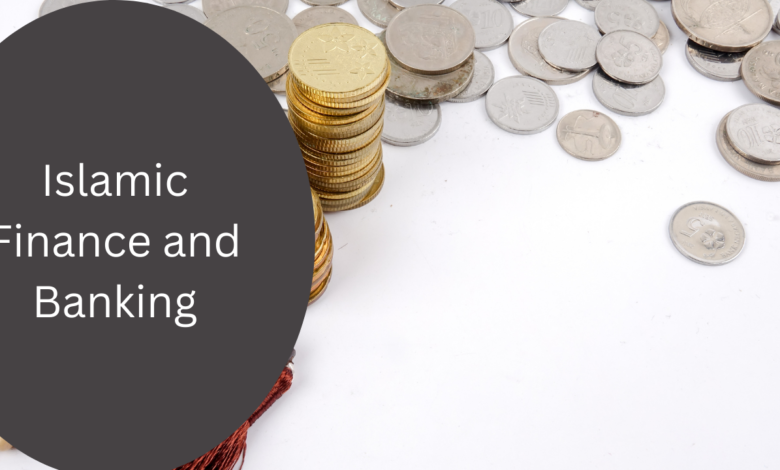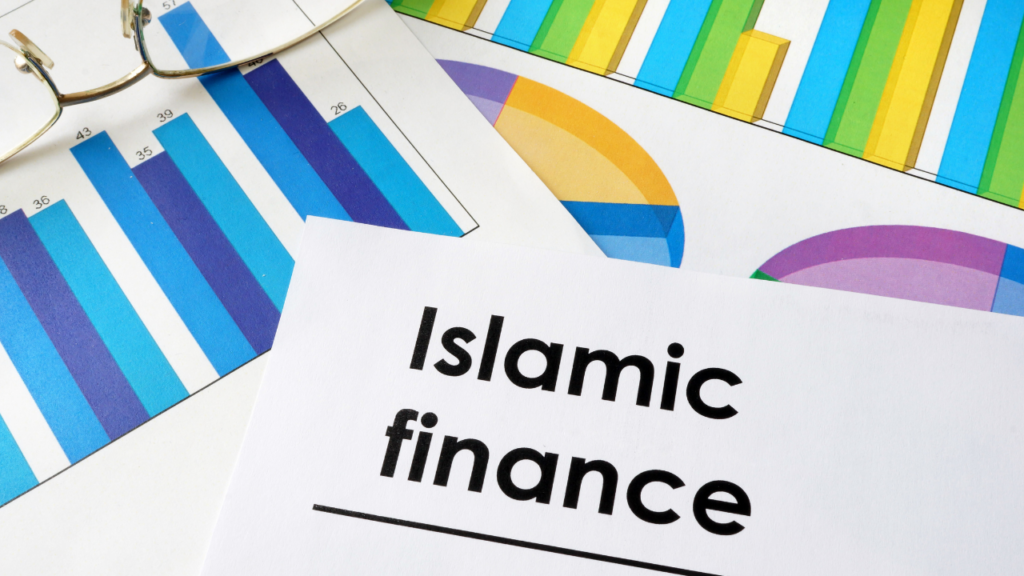Islamic Finance and Banking
Navigating the World of Islamic Finance: Principles, Practices, and Growth

Islamic Finance and Banking
Islamic finance refers to a financial system and banking practices that adhere to the principles of Islamic law (Sharia). It prohibits interest (riba) and promotes ethical, risk-sharing, and asset-backed financial transactions.

Introduction
Islamic finance and banking have gained prominence in the global financial landscape over the past few decades. Driven by a commitment to ethical and Sharia-compliant financial practices, Islamic finance has attracted attention not only from Muslim-majority countries but also from international investors and institutions seeking alternative, socially responsible investment opportunities. In this article, we will delve into the principles, practices, and growth of Islamic finance and banking.
The Foundations of Islamic Finance
Islamic finance is grounded in the principles of Islamic law, or Sharia, which governs all aspects of a Muslim’s life, including their financial activities. Some core principles that underpin Islamic finance are:
- Prohibition of Riba (Interest): One of the fundamental principles of Islamic finance is the prohibition of interest (riba). Instead of earning interest on loans or deposits, Islamic finance relies on profit-sharing arrangements and asset-backed transactions.
- Risk and Reward Sharing: Islamic finance promotes the sharing of both risks and rewards among all parties involved in a financial transaction. This aligns the interests of financiers and entrepreneurs, fostering a more equitable financial system.
- Asset-Backed Financing: All transactions in Islamic finance must be backed by tangible assets or services. This ensures that investments are linked to real economic activity.
- Ethical Investment: Islamic finance prohibits investments in activities considered unethical in Islam, such as gambling, alcohol, pork, and businesses involved in excessive speculation or uncertainty (gharar).
Also check.
- What is Gambling in Islam?
- Why is Hajj Important?
- What is Interest in Islam?
- Who is the Holy Spirit in Islam?
- Why Taking Bribe is Haram in Islam?
Practices in Islamic Finance
Islamic finance employs various financial instruments and structures to adhere to Sharia principles. Some of the most common practices include:
- Mudarabah: A profit-sharing partnership where one party provides capital (Rab al-Mal), and the other provides expertise and management (Mudarib). Profits are shared according to a pre-agreed ratio, but losses are borne solely by the capital provider.
- Murabaha: An asset-based financing arrangement where the financial institution purchases an asset and sells it to the customer at a higher price, allowing the customer to pay in installments.
- Ijara: Similar to a lease, where the financial institution purchases an asset and leases it to the customer for a fixed rental fee.
- Sukuk: Islamic bonds that represent ownership in an underlying asset or project. Sukuk provide a way to raise capital without violating Sharia principles.
- Takaful: Islamic insurance that operates on the principle of mutual cooperation and risk-sharing, as opposed to conventional insurance, which is considered speculative (gharar).
Islamic Finance’s Global Growth
Islamic finance has experienced significant growth and global acceptance in recent years. Several factors have contributed to its expansion:
- Ethical Investment: As investors seek ethical and socially responsible investment opportunities, Islamic finance’s adherence to ethical principles has become increasingly attractive.
- Diversification: Many non-Muslim-majority countries have recognized the potential benefits of Islamic finance, leading to the establishment of Islamic windows or subsidiaries within conventional banks.
- Innovation: Islamic finance has embraced innovation, developing new financial products and structures that comply with Sharia principles while meeting the needs of a modern economy.
- Regulation: Governments and regulatory bodies in various countries have introduced regulations and frameworks to support the growth of Islamic finance, providing legal certainty and investor confidence.
- Market Awareness: Educational efforts and awareness campaigns have helped demystify Islamic finance, making it more accessible to a broader audience.
Conclusion
Islamic finance and banking have come a long way since their inception, evolving into a substantial and dynamic segment of the global financial industry. Grounded in ethical principles and risk-sharing, Islamic finance offers a unique and resilient alternative to conventional finance. As it continues to grow, it holds the potential to promote financial stability, inclusivity, and ethical investment practices worldwide, appealing not only to Muslims but to anyone seeking responsible and sustainable financial solutions.

FAQs
What is Islamic finance?
Islamic finance refers to a financial system and banking practices that adhere to the principles of Islamic law (Sharia). It prohibits interest (riba) and promotes ethical, risk-sharing, and asset-backed financial transactions.
Is Islamic finance only for Muslims?
No, Islamic finance is not exclusively for Muslims. While it originates from Islamic principles, its ethical and risk-sharing nature has attracted interest from a diverse range of investors, including non-Muslims.
How does Islamic finance handle interest (riba)?
Islamic finance strictly prohibits interest-based transactions. Instead, it employs profit-sharing arrangements and asset-backed financing to ensure fairness and adherence to Sharia principles.
What are some common Islamic financial instruments?
Common Islamic financial instruments include Mudarabah (profit-sharing), Murabaha (cost-plus financing), Ijara (leasing), Sukuk (Islamic bonds), and Takaful (Islamic insurance).
How does profit-sharing work in Islamic finance?
In profit-sharing arrangements, one party provides capital, while the other provides expertise or management. Profits are shared based on a pre-agreed ratio, but losses are borne solely by the capital provider.
Are there any restrictions on investments in Islamic finance?
Yes, Islamic finance prohibits investments in activities considered unethical in Islam, such as gambling, alcohol, pork, and businesses involved in excessive speculation or uncertainty (gharar).
What is the significance of asset-backed financing in Islamic finance?
Asset-backed financing ensures that every financial transaction is linked to tangible assets or services, promoting transparency and discouraging speculative practices.
What is a Sukuk, and how does it differ from conventional bonds?
Sukuk is an Islamic bond that represents ownership in an underlying asset or project. Unlike conventional bonds, Sukuk comply with Sharia principles by sharing risks and rewards.
How has Islamic finance grown globally?
Islamic finance has experienced significant growth due to increased awareness, ethical investment preferences, innovation in financial products, supportive regulation, and the establishment of Islamic banking windows in non-Muslim-majority countries.
Is Islamic finance a stable and sustainable alternative to conventional finance?
Many proponents believe that Islamic finance offers a stable and sustainable alternative, as it promotes ethical practices, risk-sharing, and asset-backed financing, which can contribute to financial stability and inclusivity.




